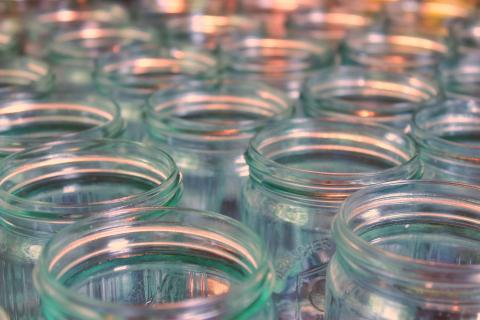Cakes and Breads Baked in Canning Jars: Are they safe?
Information on baking and “canning” breads and cakes in jars has been circulating for at least 25 years and, more recently, has been shared on social media. One recipe you might see says to bake cakes or breads in canning jars; once they are done and steaming hot, it says to place a canning lid and screw band on top and (ta-da!) you have a vacuum-sealed jar of baked goods to give your family and friends. Some recipes claim they will keep for a year. But, hold on! Don’t be so fast to assume this practice is really all it is “baked” up to be.

The biggest concern with these types of recipes is the risk of Clostridium botulinum. If the C. botulinum spores are allowed to germinate and grow a deadly botulism toxin is produced. Even tiny amounts of this toxin can cause an often deadly disease called botulism. These recipes are prime breeding grounds for these spores to cause problems. The finished product is a low-acid, moist product in a jar with little to no oxygen and left at room temperature, creating a perfect environment for these spores to germinate and grow. Several research studies from universities have shown that bread or cake products in home canning jars may support the growth of C. botulinum spores.
There is also the risk of personal injury and damage to ovens due to potential glass breakage during the baking process. Canning jars are intended for use in a boiling water, atmospheric and/or pressure canners. Canning jars are not designed for the high, dry heat of ovens.
UNH Cooperative Extension strongly recommends not to bake and can cakes and breads in canning jars. The risk of botulism is real and can be fatal and no consumer should take unnecessary risk with this microorganism. If someone gives you a homemade version of bread or cake in a canning jar, assume it is unsafe to consume and discard the contents and the jar.
Some people ask about commercially produced breads and cakes in jars or cans. Commercial processing uses additives, preservatives and processing controls that cannot be replicated for home recipes. Only purchase breads and jars in cans that contain additives to prevent microbial growth and meet all labeling requirements for commercial food. There are no research-based recipes for doing this process at home.
